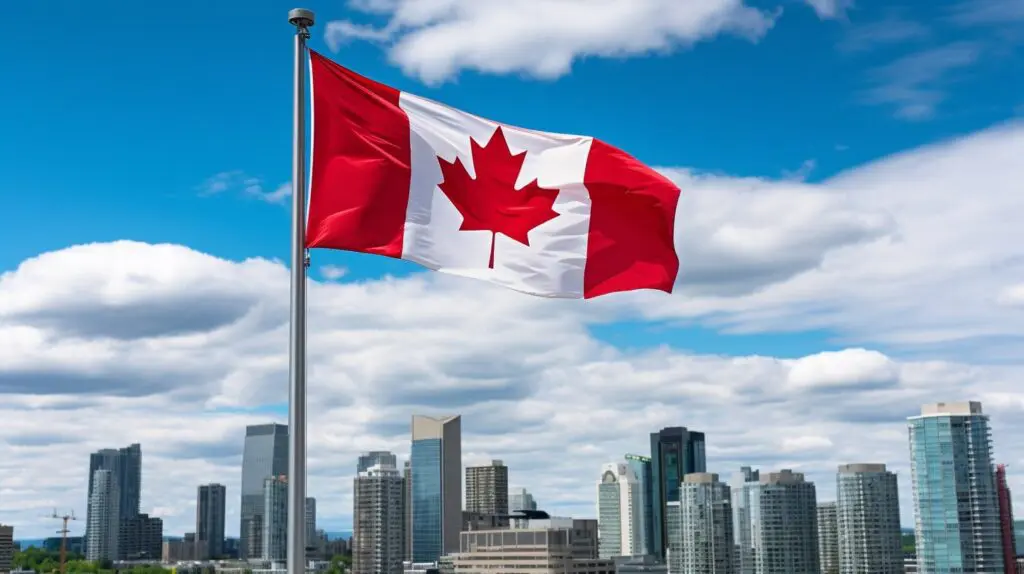- A Brief Introduction to Canadian Citizenship and Permanent Residency
- Rights of a Canadian Citizen
- Responsibilities of a Canadian Citizen
- Rights of a Canadian Permanent Resident
- Responsibilities of a Canadian Permanent Resident
- Eligibility Criteria for Citizenship
- The Application Process
- The Impact on Personal Freedoms
- Work, Taxes, and Social Benefits
- Celebrating the Similarities and Acknowledging the Differences
- Can a Permanent Resident Vote in Canadian Elections?
- Can a Permanent Resident Lose Their Status?
- What Social Benefits are Unique to Canadian Citizens?
- Can a Permanent Resident Join the Canadian Armed Forces?
- Does a Permanent Resident Pay Different Taxes Than a Citizen?
Navigating Canadian Citizenship and Permanent Residency
Understanding the dynamics between Canadian citizenship and permanent residency starts with defining the basics. Both statuses confer rights and responsibilities at the core, but the specifics vary considerably. Canadian citizens, whether by birth or naturalization, enjoy the full range of rights guaranteed by the Canadian Charter of Rights and Freedoms (the “Charter”), including the right to vote and stand for political office. Permanent residents have many of the same rights, with a few notable exceptions. Understanding these nuances is crucial to make informed decisions about immigration plans and daily life in Canada.
A Brief Introduction to Canadian Citizenship and Permanent Residency
Canadian citizenship is a status that is either conferred by birth on Canadian soil or granted to foreign nationals who have completed the naturalization process, which includes fulfilling residency requirements and passing a citizenship test. As a citizen, you are entitled to a Canadian passport and enjoy all the rights and responsibilities bestowed by the Canadian Constitution, including the right to vote and run for political office, and the obligation to obey Canadian law.
Permanent residents are individuals who have been granted the right to live and work in Canada indefinitely but who have not become citizens. While permanent residents enjoy many of the rights of citizens, such as the protection of the Charter and access to social benefits, they are subject to some limitations. They cannot vote or run for political office and their residency status can be revoked under certain circumstances.

Defining the Canadian Citizen
Rights of a Canadian Citizen
As a Canadian citizen, you have rights that are protected under the Charter, including fundamental freedoms such as freedom of conscience, freedom of expression, freedom of assembly, and freedom of association. You have the right to vote in federal, provincial, territorial, and municipal elections and in referenda. Canadian citizens can also apply for a Canadian passport, a privilege that makes international travel more convenient.
Responsibilities of a Canadian Citizen
The flip side of rights is responsibilities; as a Canadian citizen, you have several. Among these is the duty to obey Canadian law, an obligation shared by all individuals in the country. Citizenship also carries the responsibility to serve on a jury when called to do so. It implies active participation in the democratic process — exercising your ability to vote. Respect for the rights and freedoms of others and the recognition and affirmation of treaty rights are additional responsibilities inherent in Canadian citizenship.
Unravelling Permanent Residency in Canada
Rights of a Canadian Permanent Resident
Permanent residents in Canada, while not citizens, still enjoy a wealth of rights. They have the same fundamental freedoms as Canadian citizens, such as the freedom of expression, assembly, and association. They can work and study anywhere in Canada, receive most social benefits Canadian citizens receive, including health care coverage, and are protected under Canadian law and the Charter.
Responsibilities of a Canadian Permanent Resident
Permanent residents share many of the same responsibilities as Canadian citizens. They must obey Canadian laws at the federal, provincial, and municipal levels. Unlike citizens, permanent residents cannot vote or run for political office, or hold jobs that require a high-level security clearance. It is also important for permanent residents to maintain their legal status and renew their PR Card as necessary.
Canadian Citizen Vs Permanent Resident Compared
| Aspect | Canadian Citizens | Permanent Residents |
|---|---|---|
| Voting rights | Have the right to vote in federal, provincial/territorial, and municipal elections. | Cannot vote in federal, provincial/territorial, or municipal elections. |
| Holding office | Can run for political office. | Cannot hold political office. |
| Passport | Eligible for a Canadian passport. | Not eligible for a Canadian passport but can apply for a travel document for permanent residents to travel abroad. |
| Duration of stay | Can live outside Canada without any time limitation. | Must meet residency obligations (e.g., live in Canada for at least 730 days in every five years). |
| Deportation | Cannot be deported (except in rare cases of citizenship revocation due to fraud or serious criminality). | Can be deported for serious criminality or failure to comply with the Immigration and Refugee Protection Act. |
| Government jobs | Have access to certain jobs that require citizenship due to security clearances. | May have limited access to government jobs; certain positions may require Canadian citizenship. |
| International travel | Can enter Canada freely without an Electronic Travel Authorization (eTA) or a visa. | Must carry and present their Permanent Resident Card or a Permanent Resident Travel Document (PRTD) when travelling to Canada. |
| Access to social benefits | Have full access to social benefits, including health care, social security, and other government services. | Generally have access to most social benefits that Canadian citizens receive, including health care (with some potential waiting periods). |
| Jury duty | Required to serve if called upon for jury duty. | Not required to serve on a jury. |
| Education | Have access to education at all levels and may qualify for certain scholarships and bursaries reserved for citizens. | Have access to education but may not qualify for certain scholarships and bursaries that are reserved for citizens. |
| Responsibility to pay taxes | Required to pay local, provincial/territorial, and federal taxes based on residency and income earned in and outside of Canada. | Required to pay local, provincial/territorial, and federal taxes based on residency and income earned in and inside of Canada. |
| Family Sponsorship | Can sponsor family members for permanent residence, including spouses, partners, children, parents, grandparents, and others as defined by Canadian immigration laws. | Can sponsor certain family members, such as spouses, partners, and dependent children, but have more limited sponsorship options than citizens. |
| Application for government positions | May apply for any government position, including those requiring high-level security clearance. | Can apply for many government positions but may be restricted from those requiring citizenship for security clearance. |
| Protection under Canadian law | Fully protected by Canadian law and the Canadian Charter of Rights and Freedoms. | Fully protected by Canadian law and the Canadian Charter of Rights and Freedoms but their status can be revoked for serious criminality or misrepresentation. |
| Eligibility for Canadian social programs | Eligible for all Canadian social programs, some of which may have a citizenship requirement. | Eligible for most Canadian social programs, though a few may have a waiting period or be restricted to citizens. |
| Consular assistance abroad | Eligible for consular assistance from Canadian diplomatic missions while abroad. | Not eligible for consular assistance from Canadian diplomatic missions; they may still receive assistance from the consulate of their country of citizenship. |
| Responsibility to maintain legal status | No need to maintain legal status as they are citizens by right. | Must maintain their legal status and comply with the conditions of their residency to avoid losing their status. |
From Permanent Residency to Canadian Citizenship
Eligibility Criteria for Citizenship
Becoming a Canadian citizen is a significant step. The process, also known as naturalization, requires meeting several criteria. Naturalization includes being a permanent resident, living in Canada for at least three (3) out of the last five (5) years, filing taxes, demonstrating proficiency in one of the two official languages in Canada (English or French), and passing a test on your rights, responsibilities and knowledge of Canada.
The Application Process
Once the eligibility requirements are met, the next step is to apply for citizenship. Applying for citizenship involves completing an application package and submitting it to Immigration, Refugees and Citizenship Canada (the “IRCC”). If the application is successful, the final step is to take the Oath of Citizenship at a citizenship ceremony.
Becoming a Canadian Citizen: Step-By-Step
Permanent Residency
Live in Canada as a permanent resident for the required period.
Eligibility Check
Ensure you meet all the eligibility criteria for citizenship.
Application Submission
Complete and submit the citizenship application form with necessary documents and fees.
Citizenship Test
Prepare for and take the Canadian Citizenship Test, if required.
Interview
Attend an interview with a citizenship official, if necessary.
Ceremony
Participate in the citizenship ceremony and take the oath of citizenship.
The Daily Impact: How Status Affects Life in Canada
Your status, be it a Canadian citizen or a permanent resident, can have various impacts on your daily life. These impacts range from your personal freedoms to your ability to work, the taxes you pay, and the social benefits you are eligible to receive.
The Impact on Personal Freedoms
Canadian Citizens
As a Canadian citizen, you enjoy the full range of personal freedoms set out in the Charter. These include freedom of conscience, freedom of thought, belief, and expression, and the right to peaceful assembly and association. You have the right to move within Canada, to leave Canada, and, importantly, the right to enter and remain in Canada. The right to enter and remain in Canada means that you can travel outside of Canada without worrying about maintaining your residency status.
Permanent Residents
Permanent residents have many of the same freedoms as citizens. They are protected by the Canadian Charter of Rights and Freedoms and can freely express their thoughts, meet with others, and practice their religion. They can move within Canada and leave Canada. However, they must meet certain residency obligations to maintain their status. For instance, they must live in Canada for at least two (2) years in a five (5) year period. Permanent Residents may lose their PR status if they do not meet these residency obligations.
Work, Taxes, and Social Benefits
Canadian Citizens
As a Canadian citizen, you have the right to work anywhere in Canada. You can also run for political office and apply for any government jobs, including those requiring a high-level security clearance. Citizens are subject to Canadian taxes on their worldwide income. They are also eligible for all social benefits that Canada offers, such as health care, social security, and unemployment insurance.
Permanent Residents
Like citizens, permanent residents can work anywhere in Canada and have access to most of the social benefits that citizens do. However, some jobs, especially those in the government that require a high-level security clearance, are reserved for Canadian citizens. Permanent residents also pay taxes on their worldwide income, like citizens. They can participate in Canada’s universal healthcare system, benefit from social security provisions, and are eligible for unemployment insurance.
Embracing Your Role in the Canadian Mosaic
As a law firm, Pax Law Corporation often sees clients grappling with the complexities of Canadian immigration law. Clients often ask about the differences and similarities between Canadian citizenship and permanent residency. Understanding these is key to embracing your role in the Canadian mosaic.
Celebrating the Similarities and Acknowledging the Differences
Similarities
Canadian citizens and permanent residents share the right to access essential social services in Canada, such as healthcare and education. They can live, work, or study anywhere in Canada and are protected under Canadian law and the Canadian Charter of Rights and Freedoms.
Differences
Differences, however, are significant and can greatly impact one’s experience in Canada. The right to vote or run for political office is exclusive to Canadian citizens. The assurance of entering and remaining in Canada without having to renew a resident card or fulfill residency obligations is another privilege of citizenship.
Understanding these differences can help your immigration process and maintain your long-term goals, whether you aim to actively participate in Canada’s political process or seek the security of unalterable status in the country.

Proudly Canadian: A Conclusion on Citizenship and Permanent Residency
From a legal perspective, Canadian citizenship and permanent residency status offer many opportunities and protections under Canadian law. They are two sides of the same coin, each providing a unique set of rights and responsibilities contributing to the fabric of Canadian society.
Permanent residency is a significant step toward becoming a fully-fledged member of Canadian society, granting most of the rights and responsibilities of citizens. However, the transition to Canadian citizenship marks the fulfillment of a journey, opening the door to the full array of rights, responsibilities, and privileges inherent in being a Canadian.
As you navigate your path in Canada, remember that whether you’re a permanent resident or a Canadian citizen, you’re an essential part of the Canadian mosaic. Each status contributes in its unique way to the diversity and vibrancy that define Canada. As a law firm, we advise you to stay informed about your rights and responsibilities and to seize the opportunities your status affords. After all, every individual’s active participation strengthens the fabric of our society, making us all “Proudly Canadian.”
With an understanding of the legal landscape and the distinct nature of citizenship and permanent residency, you’ll be well-equipped to make informed decisions and thrive in the Canadian mosaic.
“Remember, remember always, that all of us, and you and I especially, are descended from immigrants…”
– Franklin D. Roosevelt

As a firm built on the foundations of hope and dedication, Pax Law understands the dreams that drive you to seek a new life in Canada. Our team is committed to turning those aspirations into realities. Begin your journey today, and let us guide you to the future you envision. Contact Pax Law – your partners in immigration success.
FAQ:
Can a Permanent Resident Vote in Canadian Elections?
No, only Canadian citizens have the right to vote in Canadian elections. The right to vote in Canadian elections includes federal, provincial, territorial, and municipal elections. Permanent residents do not have this right.
Can a Permanent Resident Lose Their Status?
Yes, a permanent resident can lose their status under certain conditions. For instance, they can lose their PR status if they stay outside Canada for too long. A permanent resident must live in Canada for at least two (2) years in a five (5) year period. A permanent resident may lose their PR status if they do not meet these obligations.
What Social Benefits are Unique to Canadian Citizens?
While many social benefits are shared between permanent residents and citizens, some are unique to Canadian citizens. For instance, only Canadian citizens can apply for a Canadian passport and can run for political office. Moreover, certain jobs in the public sector that require a high-level security clearance are reserved for Canadian citizens.
Can a Permanent Resident Join the Canadian Armed Forces?
The Canadian Armed Forces (CAF) has certain positions open to permanent residents. However, most positions require applicants to be Canadian citizens. The CAF encourages permanent residents interested in serving to contact a local recruiter to discuss their specific circumstances.
Does a Permanent Resident Pay Different Taxes Than a Citizen?
No, both permanent residents and citizens of Canada are considered residents for tax purposes. As such, they are taxed on their worldwide income and are subject to the same tax laws.